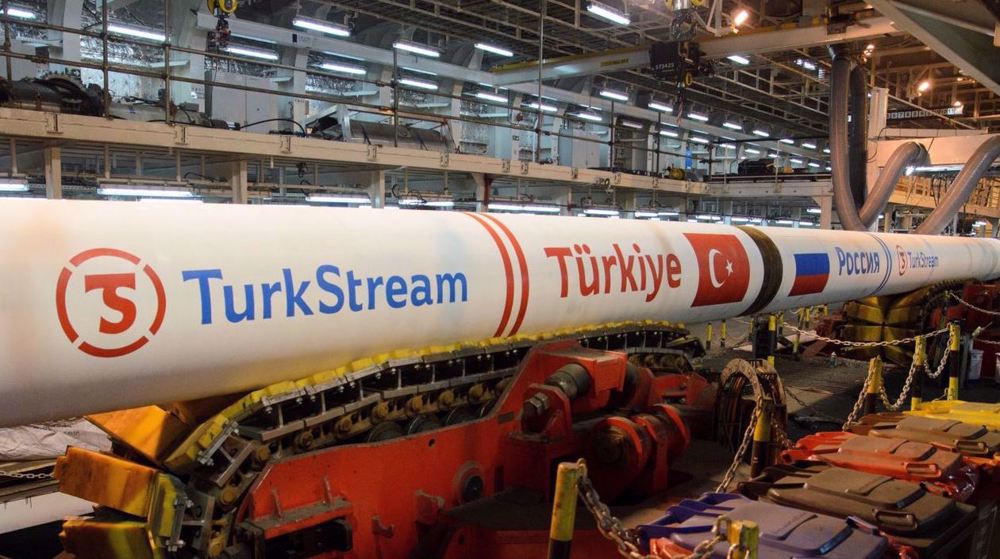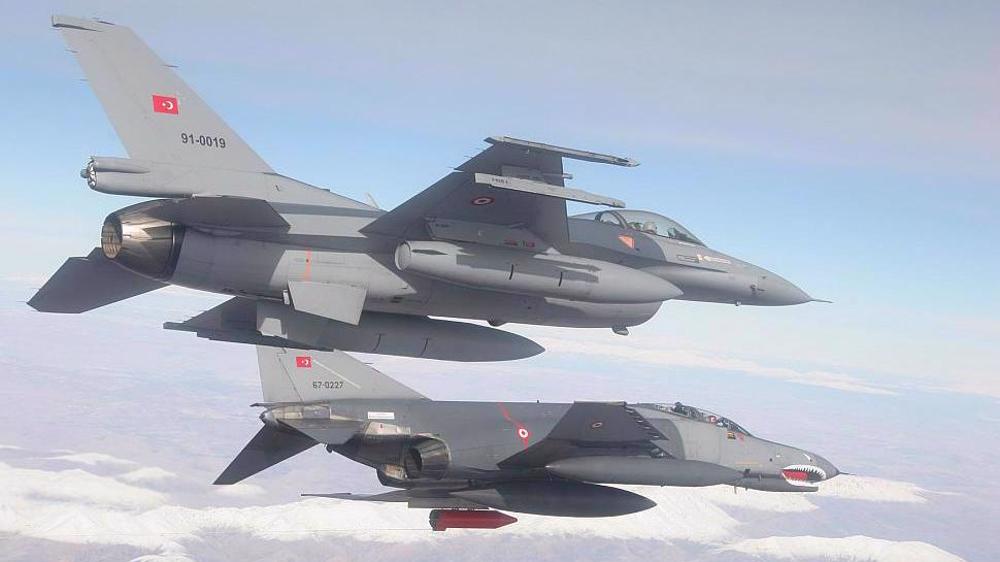Armenia genocide useful blackmail opportunity against Turkey: Erdogan
Turkish President Recep Tayyip Erdogan says charges that the Ottoman Empire committed genocide against the Armenians are being used to “blackmail” Turkey.
"The Armenian issue is a useful blackmail opportunity against Turkey all around the world, and it is even starting to be used as a stick," said Erdogan during a televised speech on Saturday.
"I am addressing the whole world. You may like it, you may not. Our attitude on the Armenian issue is clear from the beginning. We will never accept the accusations of genocide," he added.
On Thursday, the German parliament approved a resolution recognizing the killings of Armenians by Ottoman Turks a century ago as genocide.
Despite being symbolically significant, the motion has no legal effect.

Armenians say up to 1.5 million Armenian Christians were systematically slaughtered in eastern Turkey through mass killing, forced relocations and starvation, a process that began in 1915 and took over several years during World War I and the breakup of the Ottoman Empire.
Erdogan went on to stress that the Ottomans were "under siege from all sides" and "of course a number of measures were taken to restore order in Anatolia".

Ankara rejects the term “genocide” and says 300,000 to 500,000 Armenians, and at least as many Turks perished between 1915 and 1917, in what the Turkish government sees as the “casualties” of World War I. Only a few countries, including France and Russia, officially recognize the events as genocide.
Referring to the Holocaust, he further noted that Germany is "the last country" to make such accusations. “The countries that are blackmailing us with these Armenian genocide resolutions have the blood of millions of innocents on their hands."
EU-Turkey refugee deal
"Either we find solutions to our problems in a fair way, or Turkey will stop being a barrier in front of the problems of Europe. We will leave you to your own worries," he added.
According to a March deal, boat refugees arriving on European soil via the Aegean Sea may be sent back to Turkey. For each refugee returned, the EU will take one Syrian refugee currently living in Turkey.
In return, the EU has made several commitments to Ankara, including financial aid, visa-free travel to the bloc for Turks, and progress in negotiations on its membership to the eurozone .

Hundreds of thousands of refugees are still fleeing conflict-ridden zones in Africa and the Middle East, particularly Syria.
Last year, more than 1.1 million refugees entered Europe through Turkey and Greece and then made their way through the Balkans to Germany and other northern member states of the EU. The influx of refugees has crippled the bloc, particularly the countries on its external borders.
How can you look me in the face?
President Erdogan also accused the EU of "hypocrisy" and using "propaganda machines, Armenians or terror groups" against Ankara.
"Don't deliver blows below the belt in the media or the economy," he added.

Erdogan also expressed his disappointment that German Chancellor Angela Merkel had not taken part in the Thursday vote, saying he wished that she had cast her ballot.
"Now I wonder how, after such a decision, German officials will look me and our prime minister in the face," he said.
On Thursday, Merkel, who cited "public engagements" as the reason for not taking part in the vote, stressed that relations between the two countries remain "broad and strong."
"There is a lot that binds Germany to Turkey and even if we have a difference of opinion on an individual matter, the breadth of our links, our friendship, our strategic ties, is great," she said.
Following the vote, a spokesperson for the German embassy in Ankara said Germany's chargé d'affaires has been summoned to the Turkish Foreign Ministry over the move.
Hamas thanks Iran, Resistance Front following achievement of ceasefire in Gaza
'Capitulation': Israeli officials and media concede Gaza defeat as truce unfolds
'Gaza has won': Social media users react to ceasefire with mix of relief, joy
Iran seeks South Korea’s assistance for AI, fiber-optic projects
VIDEO | Iran's 'Eqtedar' (Power) maneuver
Israel hits HTS military target in Syria for 1st time since fall of Assad
VIDEO | Press TV's news headlines
Israel has slaughtered 13,000 students in Gaza, West Bank













 This makes it easy to access the Press TV website
This makes it easy to access the Press TV website